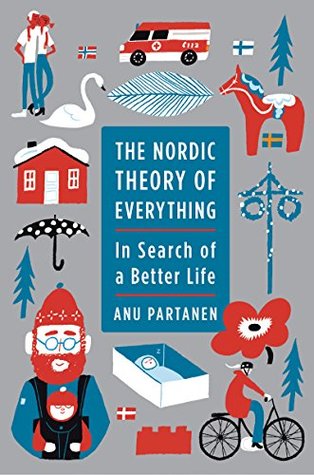More on this book
Community
Kindle Notes & Highlights
by
Anu Partanen
Read between
November 28 - December 3, 2016
From a Nordic perspective a failure to ensure sufficient parental leave is nothing short of a violation of fundamental human rights—specifically, of a child’s basic human right to be cared for, to be nurtured, and to have parents who are able and present to do the job and do it well.
Just as with good parental leaves and affordable day care, the Nordic theory of love has led Finland as a nation to decide that universal access to good schools is also essential to guaranteeing the fundamental human rights of a child growing up in the modern age. The lottery of whether or not a child is born into the sort of family wealth necessary to fund a private education should have nothing to do with it.
“A civilized society cannot allow a child’s right to a normal childhood and a decent education to be held hostage to a parent’s whims or greed. . . . This rationale explains why most rich countries simply give parents no choice: Children have to be sent to school until a certain age, unless parents can prove they are educating them at home.”
The Nordic countries feel that they can’t afford to waste the potential of any of their children, no matter what their fortunes in life.
Workers, like entrepreneurs, can try out a new approach when the risk of ending up on the street is practically zero.
What Americans need, so that they can stop struggling so hard to be superachievers, is simple: affordable high-quality health care, day care, education, living wages, and paid vacations.
“But social mobility without social investments is simply not possible. So if you start to give up on public schools and a collective system for enabling individual social mobility, you’re going to end up with inequality, gated communities, collapse of trust, a dysfunctional political system. All these things you see now in the United States.”
At some point Americans forgot that it’s not enough to talk about equal opportunity, democracy, and freedom. These things need to be protected and supported by concrete actions—something that Americans of recent decades have neglected to do.


